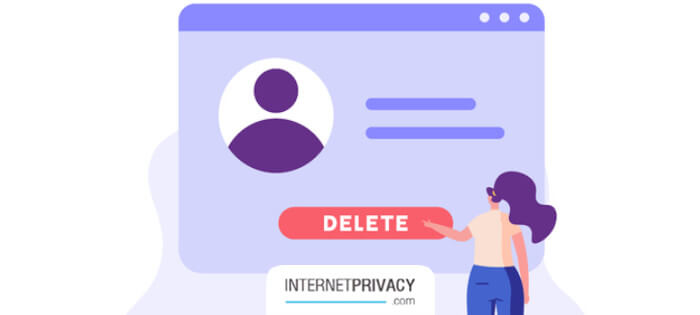Internet Privacy Statistics You Should Know

Internet privacy statistics help paint a more accurate picture of the dangers we all face when surfing the internet. Read on to learn about some of the most eye-opening and current online privacy statistics.
In case you didn’t notice, a significant part of our lives unfolds online. This is indeed somewhat exhilarating. And yet, all the progress technology has made in the past 10 years has led to our lives occurring in the digital realm just as much as off it. What’s not to love, though? Information is quick to obtain, people are easily interconnected, and processes have been incredibly facilitated.
However, the more we give of ourselves to the online environment, the more online security seems to become a growing concern.
We actually have very little control over the data we put out there, and statistics are here to prove just that. It’s interesting how we tend to believe that our personal information is in safe hands when, in fact, there are internet privacy statistics all of us should know that will prove otherwise.
Internet privacy and security are now increasing concerns throughout the world. But, what does it actually mean? Why are online security and digital risk so stringent and a constant on everybody’s lips?
To put it shortly, it’s mainly because the internet has considerably impacted our digital privacy. And, if you are still wondering what internet privacy is, know it’s a subtype of data privacy involving the right to personal privacy when storing, displaying, repurposing, and providing someone’s personal data.
Is There Privacy On The Internet?
Most of us seem to feel that there isn’t, with 79% of internet users around the world feeling they have completely lost control over their data.
Although we all have the option to choose what happens to the personal data we provide, we can’t be completely immune to risks, and total online privacy cannot be achieved. According to recent internet privacy statistics, an internet attack takes place every 39 seconds on average.
The online data you’ve provided and the data collected by third parties (such as Whitepages, USPhonebook, etc.) become, at some point, out of reach. This is not necessarily out of evil intent, but as not all systems are perfectly integrated, data leakages occur.
How Has The Internet Affected Privacy?
We may have grown used to how things are now, but the internet has deeply affected how privacy is handled.
Did you know, for example, that in 2018 alone, there were 1.244 billion data breaches in the US, leading to over 446 million records exposed? Or that according to Statista, 21% of email and social media users have experienced a cyberattack at least once.
In fact, there are now communication channels that no one could have even imagined decades ago, which resulted in information being transferred at immense speed across channels. Moreover, data collection is mostly automated now, which means databases collectively hold our information.
What Are Some Online Privacy Statistics You Should Know?
Since we’re talking about internet privacy statistics, you need to know there are few to take note of as they offer great insight into what’s happening in the digital world such as:
- Identity theft is the most common kind of online data breach in the world.
- 95% of digital shoppers in the US don’t trust online shopping ads.
- 9% of digital users residing in the US think that digital privacy is not real.
- 80% of internet users from the US and Hong Kong are concerned when it comes to their internet privacy and feel threatened by their government. In this respect, government data collection can be a pet peeve to many, and internet privacy statistics are here to confirm it.
- India takes the cake when it comes to its high percentage of people aware of the country’s online privacy laws.
- Statistics show that 79% of US internet users don’t believe that organizations would take responsibility for any online data privacy issues that may arise. When it comes to this sensitive issue, Americans think they would be left to handle it alone.
These are only a few of the data privacy statistics you should know, but they offer a good insight into the digital realm, the privacy policies that regulate it, and how internet users react to it. There are many more internet privacy statistics out there — the world wide web is very well equipped in this regard.
Why Is Privacy On The Internet Such a Serious Issue?
Hmm…let’s see where to start. Statistics reveal that 6% of people who were victims of cyberattacks have suffered reputation damage.
Privacy is desirable in itself, as it means no one else knows something private to you. However, what happens when someone finds, distorts, and uses this information to make decisions that can negatively impact your life?
Internet privacy statistics show how many unpleasant turns of events resulted in Facebook content, for example, being more revealing than anticipated. People have lost their jobs, marriages, and have been cyberbullied, to say the least. This type of data mishap, however, is more specific to social media.
A data breach can happen at any time and to anyone, regardless if it’s at an individual level or within companies. Even when it’s the case that companies fight against potential risks, it’s an issue that often concerns us as well, since much of the data they hold comes from us, their online users.
Although there are now more online privacy laws and regulations than ever, nothing that can fully protect you from cyber-attacks and other devious malware. There are a myriad of internet privacy statistics that can confirm this information.
People are now increasingly concerned about social media platforms and the online data they share with these platforms. Following a string of scandals exposing worrisome consumer privacy policies from major platforms, online privacy statistics show how users are now more reluctant to share private information with their social media accounts.
How Can Average Internet Users Protect Their Online Privacy?
There are some things you can do to protect your online privacy. You don’t even need to be super tech-savvy to implement them!
Of course, once you sign in to your email or social media profile, order food, or pay online for a cab, you can rest assured your personal information is launched into the vast cyberspace without any absolute means of control over it.
What internet users worldwide can do to keep a relatively low profile online and not share their information unwillingly with undesirable third parties is:
Use Different Search Engines
Instead of using the classic Google Chrome or Opera, you can switch to a search engine that doesn’t track or store personal information. DuckDuckGo is one of them.
Turn Location Services Off
It’s recommended that you turn off location services whenever you’re not using them. Internet privacy statistics show that a lot of data leakages happen via active location services.
Delete Cookies
It’s important that you also configure your browser to delete all cookies.
Cover Your Camera
Do you know how some people place a sticker over their camera? Well, you should do it too! It’s better because, otherwise, hackers could take a picture of you.
Steer Clear Of Cloud Backup
Be sure not to use cloud backup of any kind since this basically allows third parties access to your personal information.
These are only a few of the steps internet users can take to protect their data in case of a data breach and cyber-attack of any kind. Read on to learn some of the most important internet privacy statistics currently available.
What Is The Law On Internet Privacy?
There is no one law regulating everything that needs to be covered when it comes to online privacy. However, there are several federal and state laws that together create a legislative body apt enough to support online privacy — at least in its most basic needs.
Some of them are:
- The Federal Trade Commission Act (FTC) from 1914
- The Financial Services Modernization Act from 1999
- Electronic Communications Privacy Act from 1986
- Children’s Online Privacy Protection Act from 1998
Privacy regulations keep being created by regulating bodies throughout the United States, and it would be no surprise if new ones show up too in the near future.
How To Protect Yourself Online?
To maintain a level of security, it’s essential to have as little of your personal data flying around cyberspace as possible. That’s precisely why we’re here to help. At Internet Privacy, we can offer you active internet protection to keep you safe from cyber harm. We do this by removing all personal information about yourself from all data collection sites.
Our privacy protection is enough to give you that peace of mind you’ve been dreaming of. Why be part of all these internet privacy statistics when you can stay clear of everything? Simply reach out to us, give us the necessary details, and we’ll take it from there!
If you enjoyed our article on online privacy statistics, you might also like:






